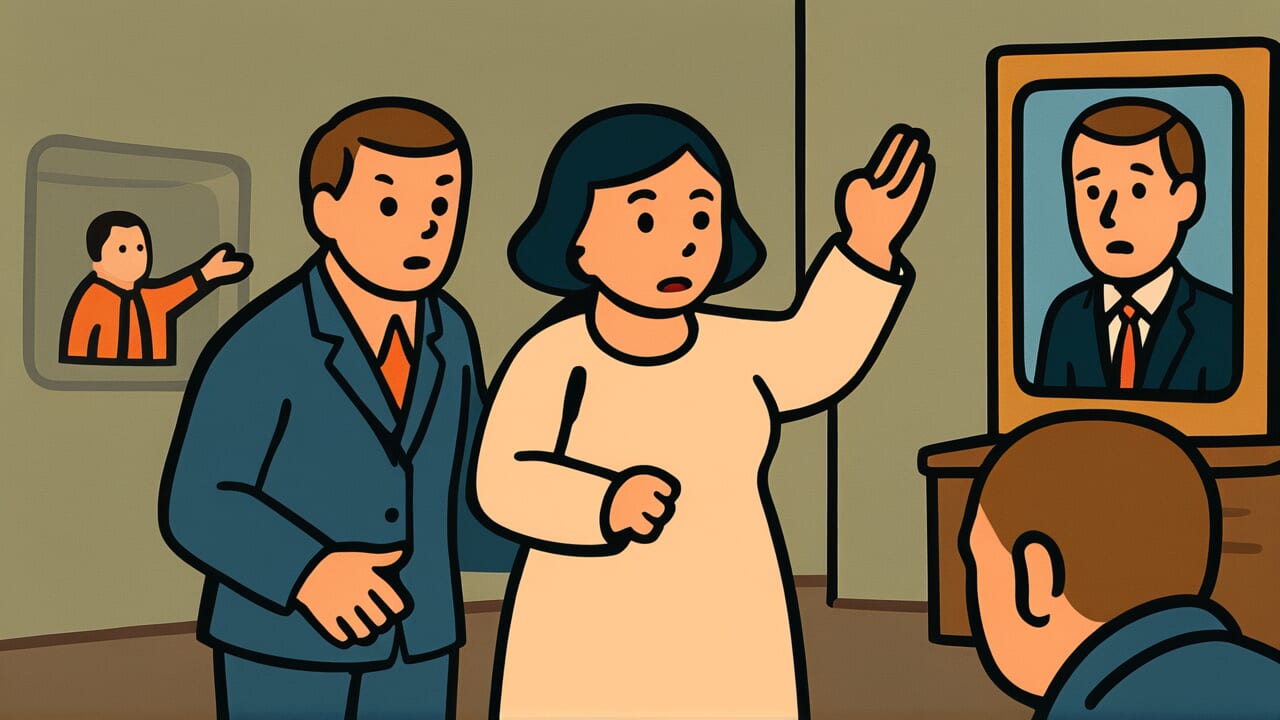How to Read “Yesterday’s friend is today’s enemy”
きのうのともはきょうのあだ
Meaning of “Yesterday’s friend is today’s enemy”
“Yesterday’s friend is today’s enemy” means that someone you were close to can suddenly become your opponent due to certain circumstances.
Human relationships are never permanently stable. Conflicts of interest, misunderstandings, or betrayals can turn a trusted person into an enemy overnight. This proverb expresses this harsh reality.
People use this saying when friendships or alliances fall apart. It often describes situations where the hatred and hostility become especially intense precisely because the relationship was once so close.
It applies to business partnerships that break down or political alliances that collapse.
Even today, relationships change constantly. This proverb doesn’t deny the importance of trusting people. Rather, it teaches us to recognize the fragility of human relationships and the importance of being cautious.
Origin and Etymology
No clear record exists of when this proverb first appeared in literature. However, the structure of the phrase offers interesting insights.
The contrast between “yesterday” and “today” in time, and between “friend” and “enemy” in relationships, forms the core of this proverb.
It expresses how human relationships can completely reverse in just one day. The extreme time frame of “yesterday” and “today” was deliberately chosen to emphasize this dramatic change.
Looking back at Japanese history, alliances changed frequently during the Warring States period. Warriors who fought together yesterday would cross swords as enemies today. This historical context likely influenced the birth of this proverb.
The word “enemy” here doesn’t mean just any opponent. It specifically means an adversarial relationship filled with resentment and hatred.
Because people were once close, the hatred runs deeper when betrayal occurs. This human psychology is reflected in the word choice.
The proverb captures the fragility of relationships and the intense swings of emotion in just ten characters. The insight of our ancestors is truly remarkable.
Usage Examples
- Those two were so close, but now they’re fighting in court. This is truly “yesterday’s friend is today’s enemy.”
- My former business partner and I are now completely hostile. I’m painfully experiencing “yesterday’s friend is today’s enemy.”
Universal Wisdom
“Yesterday’s friend is today’s enemy” has been passed down through generations because it recognizes the fundamental instability of human relationships.
Everyone wishes that friendship and trust would last forever. But in reality, conflicts of interest, differences in values, misunderstandings, and betrayals can destroy even the closest relationships.
What’s interesting is that this proverb doesn’t just say “a friend becomes an enemy.” It says “a friend becomes a bitter enemy.” The word for enemy here carries deep resentment and hatred.
Why do conflicts between former friends become more intense than conflicts with strangers? Because the pain of betrayal is greater when you trusted someone. The bigger the expectation, the deeper the disappointment.
Humans are emotional creatures. Love and hate are said to be two sides of the same coin. Perhaps intimacy and hostility are also two sides of one reality.
When you know someone well, you also know their weaknesses. When conflict arises, your attacks become more precise.
This proverb teaches us about the fleeting nature of relationships. But it also contains a paradoxical message: precisely because nothing lasts forever, we should cherish our current relationships.
Nothing continues eternally, so we should treasure the bonds we have right now. This is the wisdom of our ancestors.
When AI Hears This
When cooperation suddenly turns into betrayal in human relationships, there’s actually a mathematical turning point. Game theory’s repeated prisoner’s dilemma analyzes situations where cooperation benefits both parties, but betrayal gives one person even greater benefits.
The key element here is “repeated.” If the relationship continues tomorrow and the day after, betraying today means the other person will retaliate, so cooperation is rational.
But the calculation changes when you can see “how many more times you’ll meet.” If you know the 10th time is the last, betraying on the 9th means only one retaliation. What about the 8th time? The 7th?
This backward reasoning chains together, and cooperative relationships collapse all at once. This is called “backward induction.”
Even more interesting is the condition where betrayal occurs even when the relationship’s end isn’t visible. There’s a number called the “discount rate” that shows how important the other person will be in the future.
When this falls below a certain value—when you feel the other person’s future value has diminished—betrayal becomes more rational than cooperation.
A colleague who’s transferring, a classmate near graduation, a neighbor who’s moving away. The moment you sense the relationship ending, you unconsciously discount the other person’s value. You choose to betray today the person you cooperated with yesterday.
Lessons for Today
This proverb teaches modern people the importance of appropriate distance and balance in relationships. You don’t need to doubt everyone, but blind trust is also dangerous.
Even in close relationships, you should understand that when positions or interests change, the relationship itself can change too.
Especially in business and organizations, you shouldn’t confuse personal friendship with professional relationships. In environments where today’s ally might not be tomorrow’s ally, clarifying contracts and agreements prevents future troubles.
This goes beyond just emotions.
However, knowing this proverb doesn’t mean you should become distrustful of people. Rather, recognizing that relationships can change helps you cherish your current relationships more.
Knowing that nothing lasts forever lets you appreciate today’s friendships and face them with sincerity. Understanding the fragility of relationships leads to the wisdom of treating them carefully.



Comments